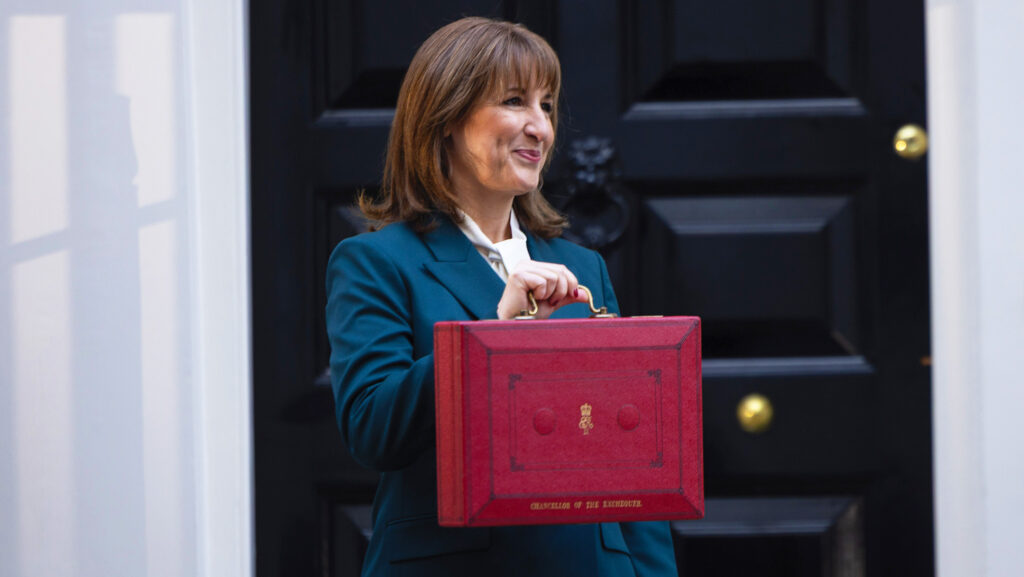Small inheritance tax concession for farmers in otherwise damaging Budget
 Chancellor Rachel Reeves © Simon Walker/HM Treasury
Chancellor Rachel Reeves © Simon Walker/HM Treasury Chancellor Rachel Reeves has offered a small concession in her Autumn Budget in relation to inheritance tax on farm assets.
She has confirmed the 100% agricultural property relief (APR) threshold will be transferable between spouses.
“This will avoid people having to transfer assets away on the first death,” explained Samantha Doherty, succession expert with law firm Thrings.
See also: Defiant farmers flood into London after tractor ban
“Farmers were being told ‘you can’t leave £1m directly to your spouse, you need to give it to the next generation, whether or not they are ready to take on the farm’.
“At least they can now just leave it to each other, like they were planning on doing originally, and get the £2m on second death.
“They should still being planning – there are not that many farms worth below that £2m, but it is a small concession.”
Ms Doherty also said it was reassuring that the chancellor had not moved to increase the seven-year gifting rules to 10 years, as had been feared, and there was no cap imposed on lifetime giving.
Response
Farm leaders have given a muted welcome to the announcement.
Tenant Farmers Association chief executive George Dunn said it would help.
“But it is hugely frustrating that the chancellor did not engage with the farming community to take account of the full package of measures that would both help the government meet its public policy objectives and diminish the damaging impacts on farm businesses,” he said.
Gavin Lane, president of the Country Land and Business Association, suggested the concession was a sign that the chancellor knows her inheritance tax reforms have been a disaster.
“Across the country, family businesses have been reducing their investment, at an enormous cost to the economy and the British public,” he said.
Other aspects
Elsewhere in the Budget, Ms Reeves confirmed a 2% tax increase on dividends from April 2026, and on savings and property income from April 2027.
“This will hit those who run their business through a limited company.
“And those who have diversified with let property, making the rental property sector increasingly unattractive,” said Sam Kirkham, partner with accountants Albert Goodman .
“From 2028, there will also be a high value council tax charge on properties worth more than £2m of £2,500 a year, and on property worth more than £5m of £7,500 a year.
“This is likely to impact owners of farmhouses, particularly if located in areas of high property value.”
Capital allowances
Changes to capital allowances will see the introduction of a new 40% first-year allowance on plant and machinery from 1 January 2026.
However, from 1 April 2026 for corporation tax and 6 April for income tax, the main rate writing-down allowances will reduce from 18% to 14%.
“Those investing in plant and machinery over and above the annual investment allowance will need to consider the impact of the above measures and the timing of their machinery purchases,” said Ms Kirkham.
Minimum wages
The chancellor has also increased the minimum wage by 4.1%, meaning over-21s will be paid £12.71/hour from next April.
“This will have a significant effect throughout the industry, not just because of the 4% increase, but the compounded effect of the already increased national insurance contributions,” said James Bush, head of farm business at GSC Grays.
“This will not make it any easier for agricultural employers to source and afford appropriate labour.”
Jack Ward, director of British Growers, said the increase was in line with expectations.
“At least it’s not another double-digit rise like we had last year,” he said.
“But wages do make up 60% of all costs in the horticultural sector, so the extra costs will have to be recouped from somewhere.”
Sugar tax
The Budget has also seen an extension of the so-called “sugar tax” to milkshakes and coffees from 2028.
NFU Dairy Board chairman Paul Tompkins said “Although dairy farmers are not directly impacted by this, processers would be, which could feed down to farm level and impact the price producers receive.
“This proposed levy ignores the highly nutritious value of milk.
“These drinks, made with at least 75% milk, are not only great tasting, but a cost-effective way for the public to source essential daily intakes of high-quality protein, calcium, vitamins and minerals.”
